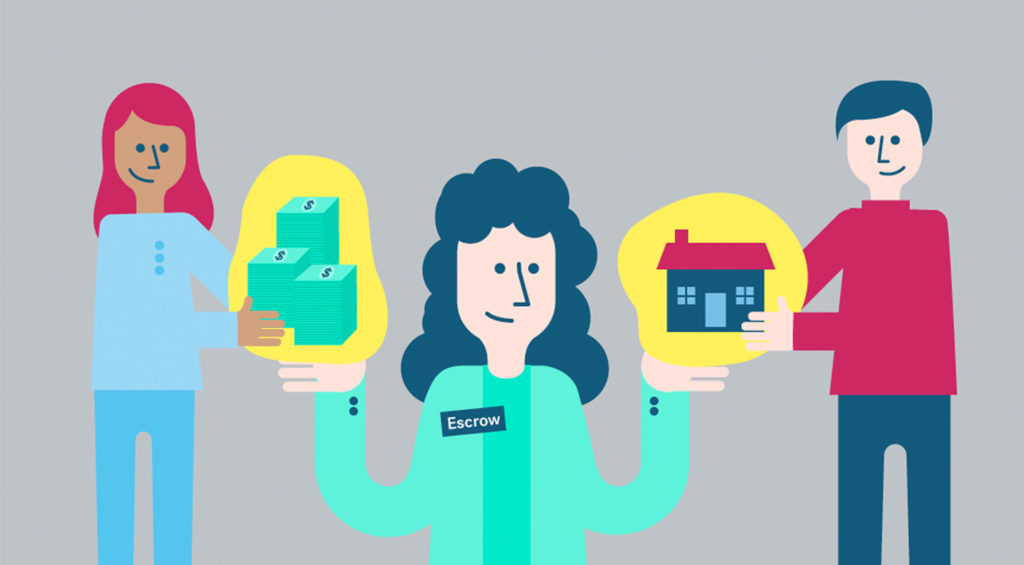18 Feb What Is Escrow?
Here’s everything you need to know about escrow—including how it’s different before and after buying a house.
Escrow is one of those words you’ve likely heard many times, but might not fully understand before it becomes a part of your life. But if you’re thinking about buying a home, it’s time to learn all about it.
What is Escrow?
Escrow is when something of value is held by a third party while a transaction is in progress. When it comes to buying and owning a home, that thing of value is money, but how much is being held—and for what purpose—depends on where you are in the process.
How Escrow Works Before Closing
What money is being held?
After you’ve done your home search and made an offer, you put an earnest money deposit into escrow. Earnest money shows the seller you are serious and financially able to make the purchase. The amount of earnest money will vary depending on the situation and requirements of the seller (or developer, in the case of new construction).
Whatever the amount, you don’t just give it to the seller. This money will be held in escrow, along with loan documents, until the deal closes or falls through. At that point, the money is either returned to you or applied to the down payment. Or, if anyone has backed out of the deal in a way that breaches your contract, the contract will determine who gets it.
Who’s got your money?
The entity holding your money is your escrow officer. This could be an attorney or a representative of the title company. Either way, this should always be an impartial third party—someone who is not representing the buyer or the seller. If the home is for sale by owner and no agents are facilitating the process, you’ll need to hire a third party to do the job.
How and when is escrow closed?
Generally, escrow closes once the transaction is complete. At this time the escrow officer will ensure funds are dispersed to the appropriate party (or parties) and the proper paperwork is filed.
In some cases, a portion of the money will be held after closing on your home. If, for instance, the buyer has agreed to let the seller rent the property until they find another home, some money may be used to ensure the property is left in good condition. Or, if the seller doesn’t make agreed-upon repairs before closing, escrow funds may be used to complete them.
How Escrow Works After Closing
What money is being held?
Once you’ve closed on your home, an escrow account is used to hold tax and insurance money until those bills are due. That’s because your mortgage payment includes more than the money used to service your loan. It also includes the funds needed to pay your property taxes and home insurance payments.
By keeping this money in escrow and paying these bills on your behalf, lenders have peace of mind that their investment is protected. After all, if you get behind on property taxes or home insurance, you’re at a greater risk of losing your home—and the lender is at a greater risk of being stiffed.
Who’s got your money?
Your mortgage lender is in charge of both collecting the money held in escrow and making tax and insurance payments on your behalf. As long as the payments made by the homeowner are on time, the lender is required to make all payments on or before the due dates set by the government and your insurance company.
If payments required by any party fluctuates—due to change in tax valuation, for instance—the lender can change the amount they require you to put into escrow each month, which could make your mortgage payment go up.
Who is required to have an escrow account?
If the loan-to-value ratio on your home is below 80 percent, your lender will likely require you to have an escrow account. And escrow accounts for FHA loans are mandatory.
If you do have a high amount of equity in your home and you’ve opted for a conventional loan, it’s up to the lender to determine if an escrow account will be necessary. Some lenders will allow you to make insurance and tax payments on your own but may charge you a fee to waive the requirement.
How does an escrow account work with taxes?
When it comes time to file your taxes, it’s important to note that only the property taxes paid from your escrow account are eligible to be used as a deduction. You will need to compare the amount of property taxes paid from your escrow account with the actual property tax bill you received in case what you paid was greater or less than the amount due.

